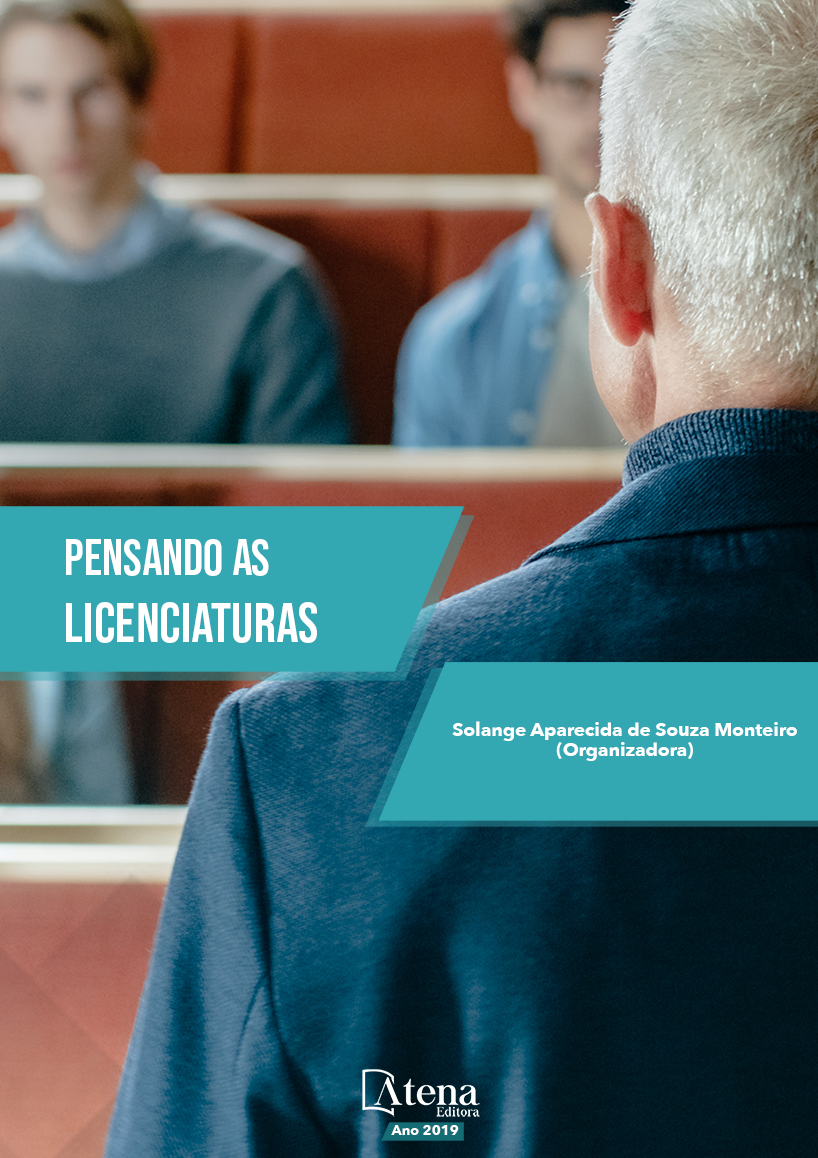
AS POTENCIALIDADES DO MATERIAL CONCRETO PARA O ENSINO DA MATEMÁTICA: O CÁLCULO DA RAIZ QUADRADA SOB O VIÉS DA GEOMETRIA
Este trabalho tem como objetivo
analisar as potencialidades que envolvem os
materiais concretos desde sua criação a sua
aplicabilidade em sala de aula. Nesse sentido,
a hipótese que se defende é que o uso do
material concreto aperfeiçoa às metodologias
didáticas que envolvem o ensino de matemática
e, assim, torna-se importante, haja vista que
ressignifica os conhecimentos matemáticos dos
discentes. Dessa forma, o estudo circunscreve
em uma pesquisa bibliografia e de experimental,
no qual se aplicou uma proposta de elaboração
de materiais concretos com foco na abordagem
do conteúdo “A raiz quadrada sob o viés da
geometria”, realizado com em graduandos
em Licenciatura em Matemática do Instituto
Federal de Educação Ciência e Tecnologia do
Piauí (IFPI), durante a disciplina ministrada
pelo professor Dr. Roberto Arruda Lima Soares.
A fundamentação teórica basilar para as
discussões do trabalho são as concepções dos
seguintes estudiosos: Berlinghoff (1994), Lima
(2012), Vaz (2017), Silva (2010) dentre outros.
Conforme os resultados obtidos, percebe-se
que há várias contribuições positivas ao utilizar
o material concreto, não só como recurso
didático, mas também pautado na construção
do mesmo. Posto isso, pode-se destacar o
fato de demonstrar para os alunos na prática a
ligação entre a álgebra e geometria, bem como
desenvolver novas habilidades relacionadas à
percepção da formação do cálculo.
AS POTENCIALIDADES DO MATERIAL CONCRETO PARA O ENSINO DA MATEMÁTICA: O CÁLCULO DA RAIZ QUADRADA SOB O VIÉS DA GEOMETRIA
-
DOI: 10.22533/at.ed.17619120225
-
Palavras-chave: Ensino de matemática; materiais concretos; prática pedagógica.
-
Keywords: Teaching mathematics; concrete materials; pedagogical practice.
-
Abstract:
This work aims to analyze the
potentialities that involve the concrete materials
from its creation to its applicability in the
classroom. In this sense, the hypothesis is that
the use of the concrete material improves the
didactic methodologies that involve the teaching
of mathematics and, thus, becomes important,
since it re-signifies the mathematical knowledge
of the students. Thus, the study circumscribes
in a bibliography and experimental research, in
which a proposal was made for the elaboration
of concrete materials with focus on the content
approach “The square root under the bias of
geometry”, carried out with undergraduate
students in Mathematics Degree of the Federal
Institute of Education Science and Technology
of Piauí (IFPI), during the discipline taught by
Professor Dr. Roberto Arruda Lima Soares. The
basic theoretical basis for the discussions of the work are the conceptions of the following scholars: Berlinghoff (1994), Lima (2012),
Vaz (2017), Silva (2010) among others. According to the results obtained, it is noticed
that there are several positive contributions in using the concrete material, not only as
didactic resource, but also based on the construction of the same. Having said this, one
can highlight the fact of demonstrating to students in practice the connection between
algebra and geometry, as well as to develop new skills related to the perception of
calculus formation
-
Número de páginas: 15
- Isabel Bezerra Lima
- Roberto Arruda Lima Soares
- Pedro Alexandre Linhares lima


